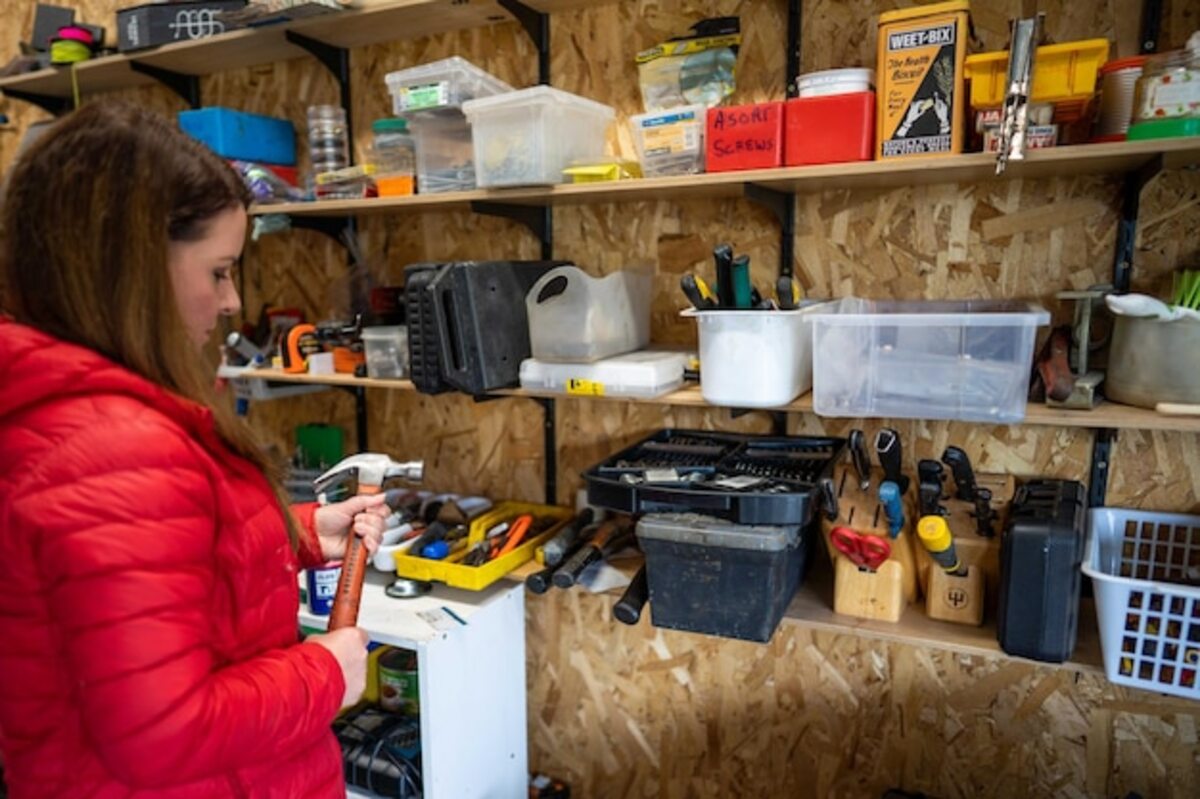Simple maintenance for a home always in balance

A home always in balance is a refuge of peace and well-being. However, achieving that state requires basic and simple maintenance that not only preserves the functionality of the spaces but also enhances their harmony. In this article, I will share practical and accessible tips to ensure that your home remains in the best condition, avoiding larger problems in the future. Discover how small actions can make a big difference in your home's daily life.
The importance of preventive maintenance: taking care of your investment.
Preventive maintenance is essential to protect your investment in your home, as every corner and every element of your house has significant value. Ignoring maintenance can lead to larger issues that not only affect aesthetics but also the functionality and safety of the space. Conducting regular inspections, such as cleaning heating and air conditioning systems or checking electrical installations, allows you to detect failures before they turn into costly repairs. In this way, you not only protect your investment but also ensure a healthy and safe environment for you and your family.
Additionally, a proactive approach to preventive maintenance fosters a sense of well-being in the home. When spaces are well-kept and function properly, a more pleasant and harmonious environment is created. Small actions like unclogging drains, lubricating hinges, or painting walls may seem trivial, but their impact is profound. These tasks not only prolong the lifespan of your belongings but also prevent the stress associated with unexpected emergencies. In summary, dedicating time to preventive maintenance is investing in quality of life and peace of mind within your home.
2. Periodic reviews: checklist for every corner of your home.
To maintain a home in perfect balance, it is essential to conduct regular checks in every corner of your space. A well-structured checklist can be your best ally to ensure that no important detail is overlooked. Start by checking essential systems like plumbing, electricity, and heating. Inspect faucets and pipes for leaks, examine outlets and wires for signs of wear, and ensure that the thermostat is functioning correctly. These simple steps will not only help you detect emerging problems but will also allow you to act before they turn into costly repairs.
Don't forget to include less visible areas in your checklist, such as attics, basements, or outdoor spaces. Make sure to clean the drainage channels, check the condition of the roof, and monitor the conditions of the garden or patio. These places tend to accumulate dirt and moisture, which can affect the overall health of your home if not addressed properly. Establish a quarterly or semi-annual routine to carry out these inspections; this way, you can enjoy a balanced and healthy environment without unpleasant surprises in the future. With a little organization and attention to detail, you will make your home a constant refuge of well-being.
3. How to keep your appliances in optimal condition.
Maintaining your appliances in optimal condition is essential to ensure their efficiency and prolong their lifespan. Start by performing regular cleanings: dust and remove accumulated dirt from surfaces, as well as food residues in kitchen appliances. For refrigerators, make sure to defrost them periodically and clean the drains to avoid bad odors and operational issues. Additionally, check the electrical connections and water hoses, as minor wear can lead to a leak or a short circuit if not addressed in time.
Another crucial aspect of maintenance is to be alert to warning signs that may indicate something is not working correctly. For example, if your washing machine makes unusual noises or your oven takes longer to heat, it might be time for a more thorough inspection. Don't forget to consult the user manuals to follow the manufacturer's specific recommendations on the care and maintenance of each appliance; many offer helpful tips that can assist you in avoiding common problems. By dedicating a little time regularly to the care of your appliances, you not only optimize their performance but also contribute to maintaining balance and harmony in your home.
4. Basic gardening: taking care of the outside for a balanced inside.
Basic gardening not only beautifies the exterior of your home, but it also helps create a balanced and healthy environment indoors. By taking care of plants and the garden, you foster a connection with nature that can have a positive effect on your emotional well-being. Planting flowers, shrubs, or even herbs not only enhances the aesthetics of the outdoor space but also contributes to purifying the air and attracting beneficial wildlife like birds and butterflies. Spending time on these simple tasks can be a rewarding way to relieve daily stress while ensuring that your home is surrounded by life.
Additionally, maintaining a well-kept garden can be essential to avoid future problems in the home. An adequate drainage system, for example, prevents water accumulation and prevents structural damage to the foundation of the house. It is also important to control pests and diseases that can affect both the garden and the interior of your home; healthy plants act as natural barriers against unwanted insects. In summary, dedicating attention to basic gardening not only transforms your exterior into a welcoming place but also provides tangible benefits for the overall balance of the home.
5. Plumbing systems: preventing common leaks and clogs.
Plumbing systems are a crucial part of home maintenance, and preventing common leaks and clogs can save you time, money, and hassle in the long run. Conduct regular checks on faucets, pipes, and drains to detect any signs of wear or leaks. Make sure to tighten connections properly and replace any worn gaskets or seals. Additionally, it is advisable to clean drains regularly with hot water and baking soda to prevent the buildup of debris that could cause blockages.
Another effective measure is the installation of filters in the drains to catch hair and other elements that often cause clogs. If your home has a hot water system, don't forget to flush the tank at least once a year to remove sediment that can affect its performance. Paying attention to these details will not only maintain the proper flow of water in your home but also help preserve the overall health of your plumbing, ensuring a healthier and more balanced environment.
6. Deep cleaning: beyond surface dust.
Deep cleaning is an essential component for maintaining a balanced home, as it goes beyond the simple removal of surface dust. This type of cleaning focuses on areas that are often overlooked during the daily routine, such as corners, behind furniture, and inside cabinets. By dedicating time to these less visible tasks, not only is the aesthetic of the home improved, but allergens and germs that can affect your family's health are also minimized. Incorporating regular deep cleaning into your schedule can prevent unwanted buildup and ensure a healthier environment.
Additionally, doing deep cleans frequently allows you to rediscover forgotten spaces and optimize the use of your home. Take this opportunity to reorganize and get rid of what you no longer need; this way, you can create a more functional and welcoming space. Thorough cleans are also ideal for establishing an emotional connection with your home, allowing each corner to resonate with harmony and order. With a proactive approach to this task, you will contribute to the longevity of your belongings and a general sense of well-being in your environment.
7. Painting and minor repairs: refreshing the environment without spending much.
Painting and minor repairs are two of the most effective and economical ways to transform a space without the need for a complete renovation. Often, a simple coat of paint can revitalize a room, bringing freshness and brightness to the environments. Choosing soft colors or neutral tones can create a relaxing atmosphere, while more vibrant colors can add energy and personality. Additionally, repairing small imperfections such as cracks in the walls or stains on the ceiling not only improves the aesthetics of the home but also prevents greater damage in the future.
Completing these tasks is more accessible than it seems; with a little time and dedication, you can carry out these improvements on your own. There are numerous online tutorials that will guide you step by step to achieve professional results. Don't underestimate the power of a few changes: in addition to the visual aspect, a well-maintained environment promotes emotional well-being and contributes to the overall balance of the home. So grab your brushes and tools, and give your space that refreshing touch it needs.
8. Tips for organizing and getting rid of accumulated clutter.
Organizing and getting rid of accumulated clutter is a fundamental step in maintaining a balanced home. Start by establishing a system that helps you sort your belongings. An effective technique is the four-box method: one for what you want to keep, another for what you can donate, one more for what you need to discard, and the last for what needs to be repaired. By taking the time to review each item, you will not only free up physical space but also mental space, allowing your home to breathe and feel more welcoming. Remember that organization is not a one-time event but a continuous process; establish weekly or monthly routines to avoid the accumulation of new unnecessary items.
Once you have decluttered your belongings, implement smart storage solutions. Use open shelves to showcase decorative items and books that add personality to your home. Organizers inside cabinets can maximize space usage and make it easier to access those items you actually use. Additionally, consider adopting the "one in, one out" rule: for every new purchase, commit to getting rid of something old. This not only helps maintain order but also encourages a mindful approach to your future purchases. With these tips in practice, you will achieve a home that is always in balance, where every corner reflects peace and harmony.



